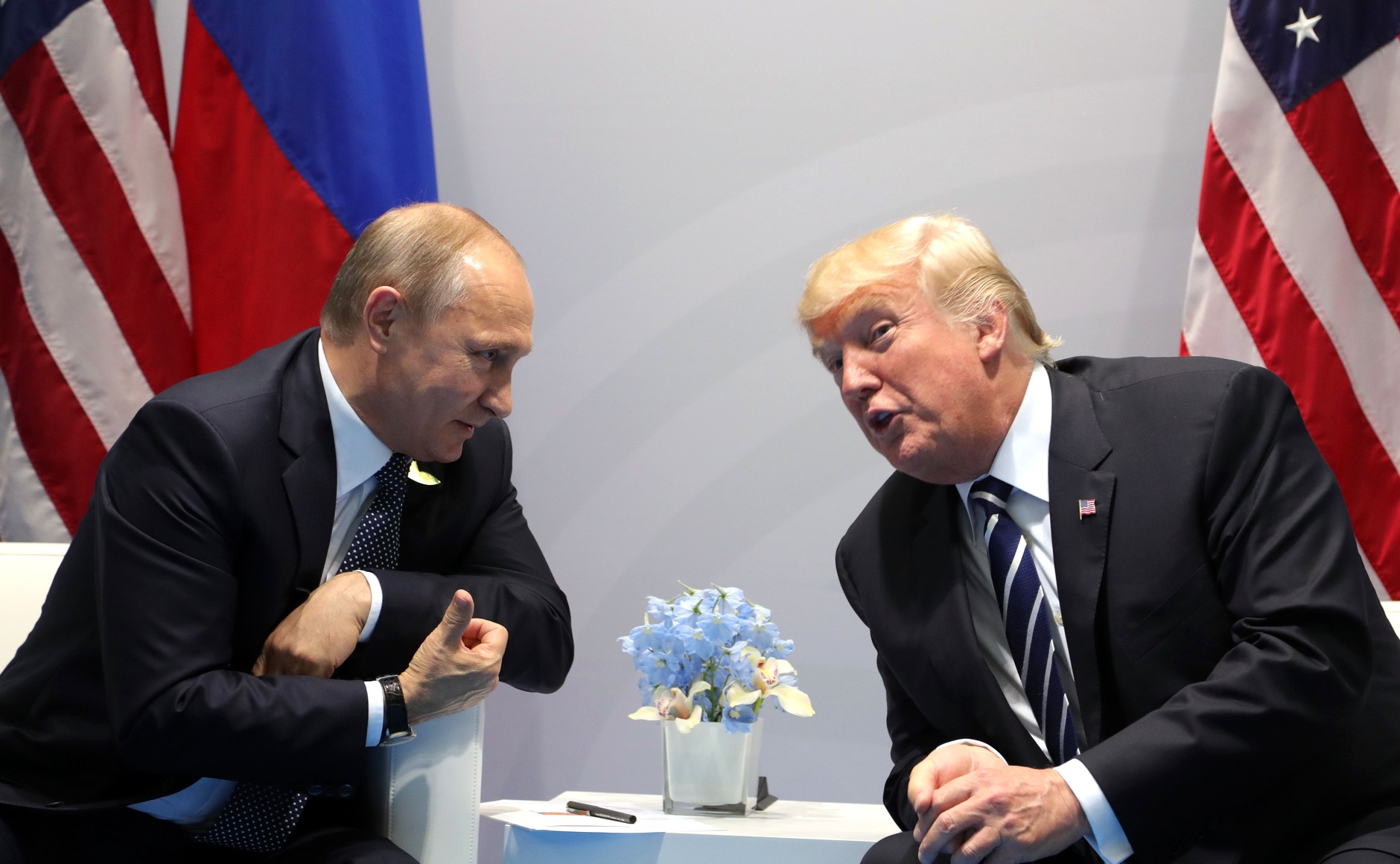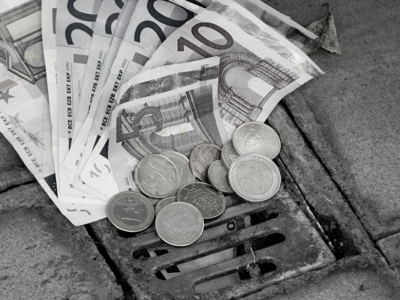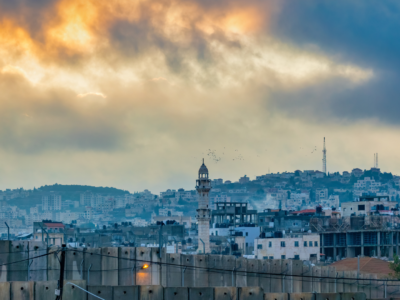Biden: No more mixed messages to Russia

29/01/2021
The new president of the United States, Democrat Joe Biden, is different in style and substance as a political leader from the Republican Donald Trump, whom he defeated in the most bitter presidential election in memory. Many in his own country and abroad hope the new president will restore stability, predictability, and core foundational values in domestic and foreign policy.
Biden faces huge challenges at home: from the need to heal the deep splits and traumas created in American society by his predecessor’s divisive politics to addressing the unprecedented scourge of the deadly COVID-19 pandemic.
But what will Biden’s arrival in the White House mean for US foreign policy and the world? And in particular for its main antagonist, Russia? After all, Trump maintained a strange, if not ambiguous, relationship with president Vladimir Putin. He preferred to depict China as America’s main opponent. Besides, he showed restraint in criticizing Russia for most of his tenure in office. Hardly ever having a bad word for Putin himself. On the other hand, Biden has emphasized he sees China as America’s main competitor, but Russia as the main threat.
Of course, there are numerous other pressing issues for Washington to deal with, most notably, relations with China, Iran, Turkey, the Middle East, and Yemen; address climate change or negotiate arms control. But the critical geopolitical one remains the enduring confrontation with Russia.
Under Putin, Moscow has pursued an aggressive policy towards Georgia and Ukraine, violated international norms, challenged Washington and the West in Syria, Afghanistan, and elsewhere; and sought to weaken western countries internally.
While Trump accused Obama’s administration of being “soft” on Russia, allowing Moscow to get away with the seizure of Crimea from Ukraine and military intervention in the east of the country, he spent much of his time in office denying that he was implicated in covering up alleged Russian interference in US domestic politics – narrowly escaping impeachment.
Gradually, Moscow’s actions and his own team’s response forced Trump to watch as Washington adopted a firmer stance. For the first time, Ukraine was given lethal weapons, and Washington imposed sanctions against Russia.
Biden assumed office when even Trump’s Republican diehard supporters had acknowledged that Russia needs to be dealt with more firmly. In late December, the US suffered a major cyberattack from Russia. While Trump played it down, his Secretary of State, Mike Pompeo, acknowledged that it was “pretty clear” that Russia was behind it. Biden and his team promised Washington would hit back with “more than just sanctions.’
On New Year’s Day, for the first time, the then Republican-dominated US Senate voted to override President Trump’s veto of the annual defense bill. And on January 11, the US Department of the Treasury imposed sanctions on seven Ukrainians and four media entities identified as part of a Russia-linked foreign influence network.
How Biden proceeds to deal with the standoff with Russia will determine to a significant degree the extent to which American leadership can be restored and international alliances strengthened. And here, the most likely priorities will be: bolstering NATO, improving relations with the EU and individual European states, sustaining effective sanctions against Moscow, and supporting Ukraine.
It should be noted that Biden has more than a quarter of a century of experience in the field of foreign policy. He knows Russia and Ukraine intimately and has traveled there on numerous occasions. He has made it abundantly clear that he knows what is at stake, what Moscow is up to, and what needs to be done to deter it.
For example, during last year’s presidential election campaign, he issued a statement on Ukraine’s Day of Independence on August 24, 2020, declaring: “As president, I will make it clear to the Kremlin that it must end its aggression toward and occupation of Ukraine. A Biden-Harris administration will ensure that Ukraine gets the economic and military support that it needs, including lethal weapons, while urging Ukraine to pursue the essential reforms that are vital to its success.”
The new president has assembled an impressive team of experienced foreign policy professionals with whom he has previously worked in the Obama administration. This is important considering that his choice for Vice-President, the impressive former senator Kamala Harris, is a newcomer to foreign policy. Should anything happen to 78-year-old Biden, US foreign policy will remain in competent hands.
Biden has appointed Antony Blinken, his closest foreign policy adviser in the past, as secretary of State. He, like Biden, prefers diplomacy, rather than bluster. But both recognize when there is a need for action and not just words: Blinken has been one of the architects of US sanctions against Russia.
The new national security advisor Jake Sullivan, who also worked with them in the Obama administration, shares similar views with Biden and Blinken. So does Victoria Nuland, a former US Ambassador to NATO, the Obama administration’s primary liaison with Ukraine during its EuroMaidan revolution in late 2013-early 2014. Her appointment to a top State Department post underscores continuity with the previous administration. Some lessons have been learned.
The key role of Russia and Central Asia senior director within the National Security Council has been given to Andrea Kendall-Taylor, a specialist in the area. Her views are indicative of the premises on which Biden’s foreign policy will be based.
According to a profile of her just published in the Kyiv Post, “Taylor believes that the greatest threats facing the US in this century come from authoritarianism and autocratic states coordinating their efforts to subvert democracy,” as exemplified in the de-facto Russian-Chinese “partnership.”
That Putin has been allowed to get away with so much is in Taylor’s view “largely the result of Washington’s reticence to lead, and the West’s failure to mount sufficient opposition to its moves.” The time has come, she believes, “for the United States and Europe to step in and blunt Putin’s momentum and protect the future we envision.”
Biden has made it clear that Moscow should not expect more mixed messaging from the US but firm and consistent responses to its actions. In his intention to reassure Washington’s partners that the US “is back,” Biden is ready to resume his leadership role and encourage them to stand firm in defense of shared democratic principles.
Fortunately for the new American president, Putin’s Russia is currently experiencing a variety of internal and external difficulties draining its capabilities and making the country more vulnerable. Like the US, Russia has been hit very hard by the COVID-19 pandemic, probably harder than acknowledged. Putin’s own health has become the subject of speculation, though not due to the pandemic. The 68-year-old Russian leader has largely isolated himself and has been behaving rather oddly.
For Russia, the good years based on the export of energy seem to be over. Oil prices have plummeted, and Russia has effectively lost its market for gas in Ukraine. At the end of 2019, Gazprom suffered a significant setback in international arbitration in favor of Kyiv. Moreover, Russia’s North Stream 2 project that brings gas to Germany through the Baltic Sea – thereby circumventing Ukraine – has not been completed because of sanctions from the US and others. Its fate remains uncertain.
Social discontent is rising, and protests in the Far Eastern city of Khabarovsk have persisted for months. The Kremlin’s botched attempt to poison the opposition leader Alexei Navalny and his rearrest in Moscow after returning from treatment in Germany have been strongly condemned both within and outside Russia. The nature of the nationwide protests in Russia in support of Navalny on January 23, unprecedented in scope and scale and extending from Kaliningrad in the west to Vladivostok in the far east, have posed challenges in different ways for both Putin and Biden as to how to respond.
During 2020 the Kremlin suffered a series of reverses in the region it had got used to controlling. Ukraine remained defiant and had not given in to Moscow’s terms to end the Donbas war. Kyiv hopes that Washington will be ready to play a role in the stalled peace process and perhaps even join the “Normandy Four” negotiations format involving Germany, France, Russia, and Ukraine.
Ukraine continues to aspire to integrate into Trans-Atlantic and European structures. In recent months it has cemented ties with Poland, Lithuania, and Moldova and, of course, continues looking towards Washington, Brussels, and London for support.
Belarus has unexpectedly erupted in a national democratic revolution after Aleksander Lukashenko once again rigged the presidential election last August. Moscow has been politically flat-footed, and Belarusian and Russian pro-democracy activists are increasingly expressing their solidarity with one another. Biden has already expressed his support for those seeking regime-change in Belarus. How he proceeds in this complex situation is one of the first challenges he has to face.
In Moldova, Maia Sandu, a pro-European candidate, was recently elected president. She has called on Russia to remove its “occupation” forces from the Transnistria enclave. Elsewhere, Russia’s ally Armenia was soundly defeated by Azerbaijan – with Turkey’s help – in a war to regain territory that Armenians held under their control since the First Karabakh War (1991-1994). Ankara is now in a stronger position to dispute Moscow’s regional leadership.
While Biden is more principled in his approach to Russia than Trump, which translates into a tougher stance towards Moscow, this does not mean he is a hawk. There is at least one area where Washington and Moscow are interested in renewing dialogue and moving towards a healthy compromise, and that is arms control. Biden has already signaled he would prefer to reduce, rather than intensify, the arms race with Russia.
The current START nuclear arms control treaty with Russia, limiting both countries to no more than 1,550 deployed nuclear warheads, is due to expire on February 4. There is also a limit on the missiles and bombers that carry them. The Biden administration has promptly announced it plans to seek a five-year extension to the treaty. With Moscow cautiously signaling it is also interested, this opens a window for moving on to other possible issues.
Interestingly, the Kremlin was the first to seek contact with Biden. The new US president agreed, but first, he emphasized the need to prepare with his staff and speak with European allies, including the leaders of NATO, Britain, France, and Germany.
Biden and Putin spoke on January 26, and the American president was reportedly diplomatic but firm. He raised concerns about the Navalny’s case, pressed Putin on Moscow’s suspected involvement in a massive cyberespionage campaign and bounties on American troops in Afghanistan, and discussed arms reduction, dealing with Iran, and Russia’s aggression in Ukraine.
With a very pressing domestic agenda and Iran and China’s challenges also to be addressed, Biden does not particularly want to aggravate America’s relation with Russia. Nevertheless, in the present conditions, he does not hold out hopes for a “reset” in the relationship with the Kremlin, and he continues to stress that he will not allow Moscow’s actions to go unpunished.
This is the scenario that President Biden has inherited. With a revamped US foreign policy, will the Kremlin recognize that confrontation is not in its interests before the new American leader sets about implementing it? Although one should not be naive, both Washington’s and Moscow’s new realities and responses will soon speak for themselves.
Bohdan Nahaylo, journalist, political analyst and former UN official.
The opinions expressed in this publication are those of the authors. They do not purport to reflect the opinions or views of the CGI or its contributors. The designations employed in this publication and the presentation of material therein do not imply the expression of any opinion whatsoever on the part of the CGI concerning the legal status of any country, area or territory or of its authorities, or concerning the delimitation of its frontiers.


